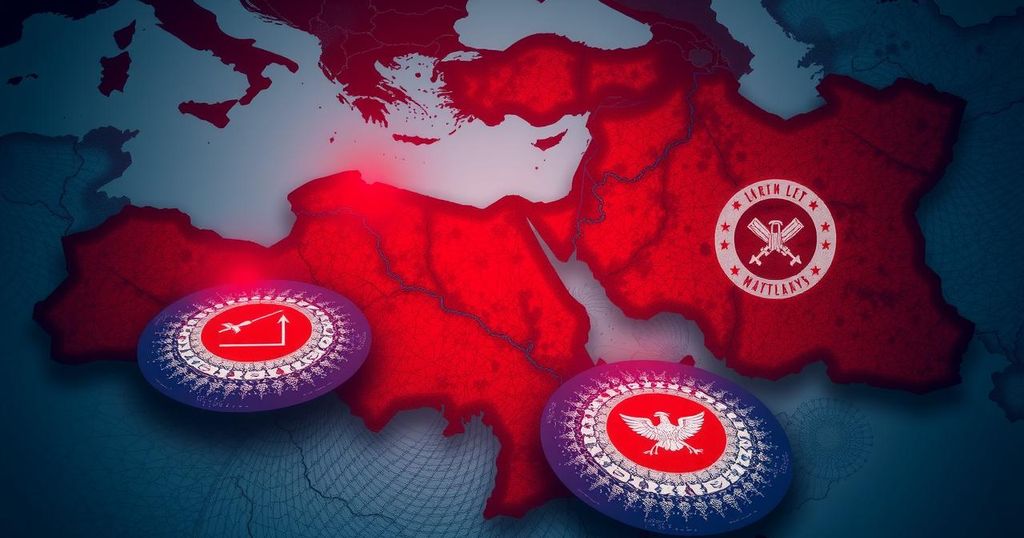Collapse of Gaza Ceasefire and U.S. Airstrikes in Yemen: A Middle East Analysis
The Gaza ceasefire has collapsed due to failed negotiations, resulting in Israeli airstrikes that killed over 400 people. Trump’s military actions in Yemen aim to challenge Iran while strengthening his political image amid domestic issues. Experts highlight the lack of long-term plans for Gaza and Iran’s resistance to negotiation under current U.S. tactics.
The ceasefire in Gaza has recently collapsed due to a breakdown in negotiations between Israel and Hamas. Following this failure, Israel severed all humanitarian aid to Gaza and launched extensive airstrikes, resulting in the deaths of over 400 individuals. This violent response illustrates the inadequacy of a proposed ceasefire that was supported in part by Donald Trump, who now faces the repercussions of a deal that is now considered nonviable.
According to Scott Lucas, a Middle East expert, the Israeli airstrikes mark the definitive end of the ceasefire, which had only paused the broader conflict for two months. The ceasefire initially began with prisoner exchanges but did not allow for a Phase Two, given Netanyahu’s unwillingness to withdraw completely from Gaza while demanding the return of hostages. Hamas’s refusal to accept eviction further complicated negotiations, paving the way for renewed assaults from Israel.
At present, there is no comprehensive long-term strategy for Gaza from Israel. Netanyahu’s immediate concern revolves around securing the return of hostages while facing mounting pressure from political factions and his ongoing legal issues. The possibility remains that as the situation deteriorates, Israel may seek to assert control in the West Bank through settlement expansions, overshadowing their actions in Gaza.
Donald Trump initially embraced the critical role he played in establishing the ceasefire. However, with its breakdown, he is expected to redirect his focus toward criticizing Hamas while possibly reassessing his strategies in the region. Furthermore, the recent airstrikes on Houthi rebels in Yemen have been interpreted as Trump attempting to reinforce his image as a strong leader and secure political capital amid domestic challenges.
The airstrikes serve multiple purposes: to impose pressures on Iran ahead of potential nuclear negotiations, demonstrate support for Israel, and possibly deter Houthi attacks. Despite these provocations, Iran’s muted response can be attributed to their current internal issues, including significant economic troubles and social unrest stemming from recent protests.
Amidst their struggles, Iran’s leadership remains cautious about engaging with the Trump administration. The subtle threats posed by U.S. military actions in Yemen are unlikely to compel Iran into negotiations, especially given their historical reluctance to engage with an administration perceived as unreliable. Recent comments from Iranian leadership reflect skepticism toward the prospect of meaningful discussions, underscoring the challenges that lie ahead for any potential nuclear agreement.
Lastly, Trump’s approach, which leans on aggression and military action, might inadvertently undermine opportunities for diplomatic solutions. The current tension suggests that without a significant change in strategy, both sides may find themselves trapped in a cycle of conflict rather than resolution.
In summary, the collapse of the ceasefire in Gaza has resulted from failed negotiations, escalations in violence, and the complex political landscape surrounding Israel and Hamas. Israel’s immediate focus appears to be on securing hostages while lacking a long-term strategy for Gaza’s future. Concurrently, U.S. airstrikes in Yemen signify an aggressive stance toward Iranian influence in the region. However, Iran’s leadership remains resistant to negotiations under the current pressures. The interplay of domestic political strategy and regional dynamics complicates the potential for future peace agreements.
Original Source: theconversation.com




Post Comment